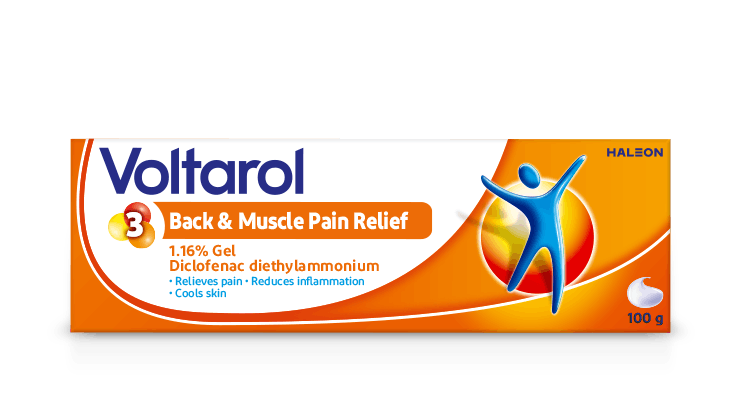
SHARE THIS ARTICLE:
Foot pain or ankle pain has a way of taking us out of commission and keeping us from the daily activities that give us a sense of identity and joy. A sore foot or ankle can make it difficult to carry out everyday activities like walking the dog, climbing the stairs, running for the bus and playing sports. Here we take a look at some common causes of foot and ankle pain so you can get back on your feet, fast.
Most of us have experienced foot or ankle pain at some time. The causes of pain in the foot... and ankle can range from something as simple as shoes that don’t fit properly, a sprain or strain, a fractured bone, to something more long-term like obesity, arthritis or gout.
Foot and ankle pain can be especially important to address. That’s because the decreased physical activity that naturally accompanies pain in the feet and ankles can lead to further health problems later on down the line. Because you are likely to be on your feet a lot throughout the day, understanding what's causing your foot pain is important for getting appropriate treatment.
Symptoms of foot and ankle pain
Foot pain and ankle pain, when not caused by direct and acutely painful injury such as a sprain, is often experienced as an intense, dull ache that may increase when weight or pressure is applied. Foot and ankle pain caused by a flareup of inflammation due to osteoarthritis can be acutely painful as well as being an ongoing condition.
Feet are complex structures made up of 26 bones, 30 joints, and numerous muscles, tendons, ligaments, and nerves. Because our feet and ankles are quite structurally complex, ankle pain symptoms and foot pain symptoms may be felt in many different areas. For example, you might feel pain in your toes, in the arch of the foot, in the heel, or in the ankle joint.

Symptoms and signs that all is not right with your foot or ankle include:
- Pain! Whether it’s sharp, or dull, intense soreness in the foot or ankle
- Swelling
- Stiffness
- Bruising
- Redness
- Decreased range of motion
- Inability to bear weight
- Numbness
Many things can cause pain in the feet or ankles. For example:
- high heels or poorly fitting shoes which can lead to short term soreness or longer term to bunions
- fractured or broken bones
- sprains
- sports injuries
- stress fractures
- tendonitis or bursitis
- plantar fasciitis
- flat feet (sometimes called “fallen arches”)
- osteoarthritis


High heels or poorly fitting shoes
Wearing shoes that don’t fit your feet properly can cause foot pain, especially if you are on your feet for long periods of time throughout the day. Sometimes it’s best to prioritise comfort over looks when it comes to footwear. Choose shoes that will provide proper support throughout the day. In the longer term, wearing ill fitting shoes can lead to bunions.
Bunions are painful bony bumps that develop at the joint where the big toe meets the foot, on the inside of the foot. The big toe can start to lean towards the second toe, and make it painful to walk.
Fractured or broken bones
A common ankle and foot pain cause is a broken bone. If you have a fractured or broken foot or ankle, you may notice any of the following... symptoms:
- sudden, throbbing pain that increases with activity and decreases with rest
- swelling
- bruising
- tenderness
- deformity (e.g. your foot may look misshapen or your ankle may seem to be at an odd angle)
- difficulty walking or bearing weight on the affected foot
A fracture or break is usually caused by some kind of trauma, for example a fall or misstep, impact from something heavy being dropped on your foot, or a car accident. Overuse can also cause stress fractures: tiny cracks in the bone, typically caused over time by repetitive movements or force.
Sprains
Sprains are a common cause of ankle pain. They occur when ligaments are stretched, twisted or torn, resulting in a swollen ankle that hurts. It may be a sprain if you’re experiencing pain, tenderness, weakness, swelling, bruising, or muscle spasms/cramps around your ankle or foot, and you cannot put weight on the injury.
Sports Injuries - Achilles Tendon
Stiffness and pain along the back of your heel could be a sign of damage to your Achilles tendon. This is caused by repetitive or intense strain of the tendon that connects your calf muscles to your heel bone. The Achilles tendon is used when you walk, run, jump or stand on tip toe, so this injury often occurs after you have been playing sports.
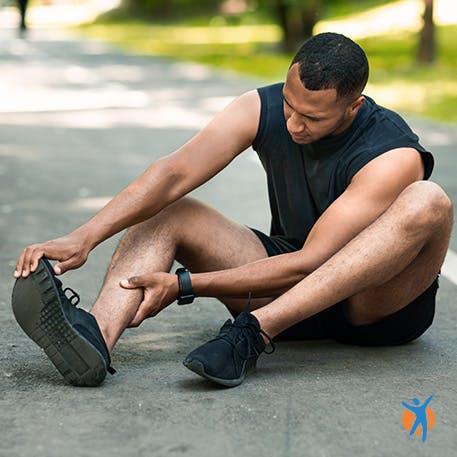
Stress fractures
Stress fractures can develop from normal use of a bone that's weakened by a condition like osteoporosis.
They also are commonly thought of as a sports injury. Stress fractures are more common in people who engage in certain sports, like gymnastics and long-distance running.
Conversely, stress fractures can also occur as a result of obesity, as the feet and ankles are carrying extra weight which puts them under pressure.
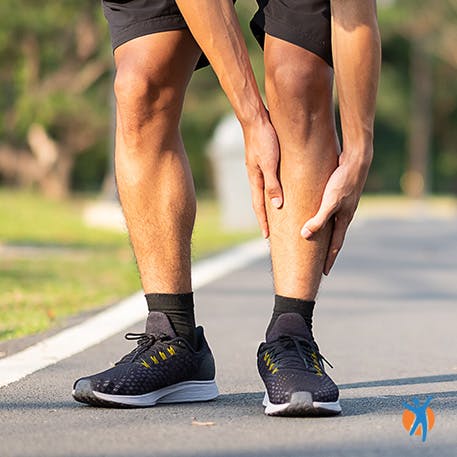
Tendonitis or Bursitis
Tendons are the bands of tissues that attach your muscles to your bones. If they are used a lot or injured, they can become inflamed, which is called tendonitis.
Bursitis is a condition that affects the small, synovial fluid-filled sacs – called bursae – that cushion the bones and tendons near your joints. These sacs can also become injured or inflamed through overuse, resulting in bursitis. Bursitis most often occurs in joints that are used in frequent, repetitive motions.
Both conditions can affect the feet and ankles, particularly common are Achilles tendonitis, or to experience these conditions if you have flat feet or high arches.
Plantar fasciitis
If you experience tenderness and pain in your feet that is at its worst first thing in the morning when you get out of bed, you may have plantar fasciitis. Plantar fasciitis, caused by damage to the band of tissue that runs under the sole, can cause:
- aching pain between the arch and heel of your foot,
- pain that feels worse when you start walking and gets better with rest,
- difficulty raising your toes off the floor.
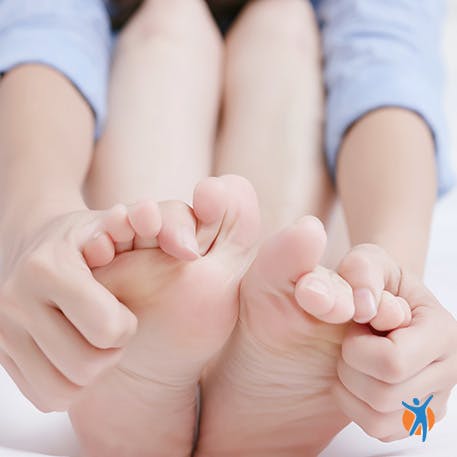
Flat feet
Flat feet (sometimes also called “fallen arches”) are where the inner sides of your feet press flat on the ground while you’re standing up. This can happen if your tendons become worn out due to ageing or injuries. Flat feet are common and usually not a cause for concern, but in some cases they can cause foot pain, specifically stiffness and pain in the bottom of the foot.
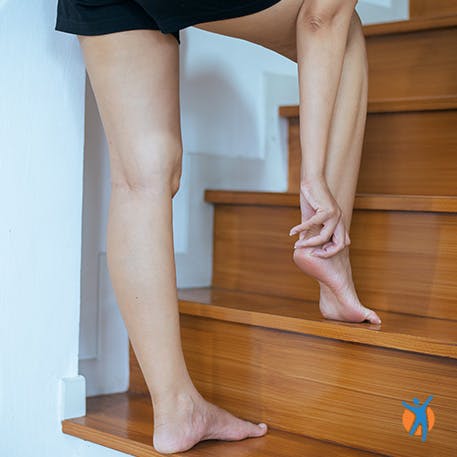
Osteoarthritis
Some people experience osteoarthritis in their foot joints or ankle joints. Osteoarthritis is a condition associated with the degradation of cartilage - the material that acts as a cushion between joint bones – thereby creating stiffness, pain, and decreased range of motion. Osteoarthritis can cause ankle pain or foot pain, especially when the condition causes inflammation to flare up.
Depending on what’s causing your foot or ankle pain, you can also use different types of over-the-counter pain relief. If you’re not sure what’s causing the pain it’s worth discussing with your pharmacist before selecting a product.
You can try the range of Voltarol gels if your foot or ankle pain or swelling is due to sprains, strains, bruising, or sports injuries, that have caused trauma to a tendon, ligament, muscle or joint in your foot or ankle. You can also use Voltarol gel on tendonitis. Please read the label to ensure Voltarol is a suitable product to treat your pain.
Voltarol gel contains a potent pain relieving anti-inflammatory that will get you back on the way to doing the simple things that bring you joy, like dancing in the living room when a favourite song comes on.
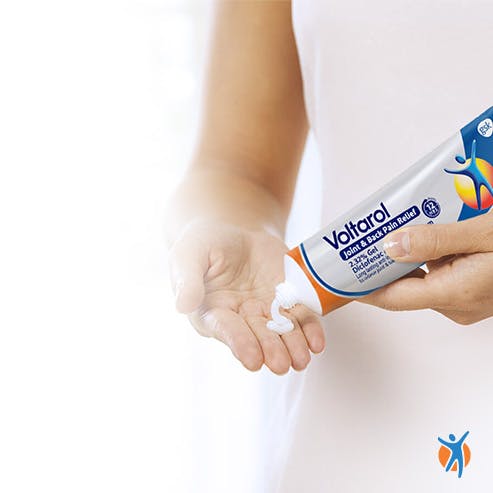
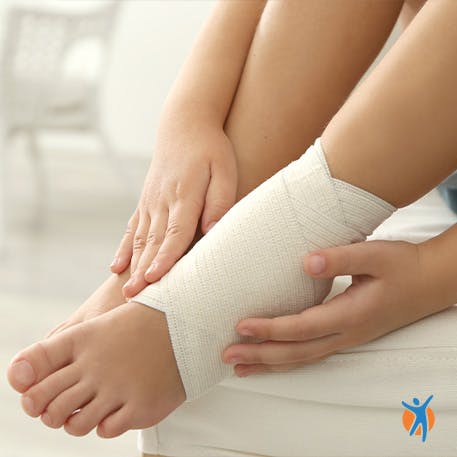
RICE - at home foot pain remedy
Home remedies such as the RICE method can help alleviate foot pain and ankle pain. Immediately after an ankle sprain you can follow RICE: Rest, Ice, Compress, Elevate.
- Rest the foot so you’re not applying more weight to it
- Apply ice or cold pack (wrapped in a towel) for 15-20 minutes every 2 to 3 hours
- Compress or wrap the area with an elastic bandage or support (not too tightly – it shouldn’t feel numb or tingle!)
- Keeping your foot elevated, ideally above the level of your heart - so lying down with it up on a sofa cushion
If it’s still hurting after three days go and see your healthcare professional or a pharmacist.
If your foot pain symptoms or ankle pain symptoms include severe pain, swelling, or an open wound, you should see a doctor. It is also important to see a professional if you’re unable to put weight on your foot or find it difficult to walk, if you have burning pain or numbness, or if you have diabetes. Your doctor may perform a physical examination, order imaging tests such as an X-ray or MRI, and give advice on what remedies are most appropriate to use for sore feet or ankles.
Explore Voltarol products for pain relief

SHARE THIS ARTICLE:
Health, wellness & your pain
Pain is rarely just physical nor is it always solved by taking medicine alone. Voltarol is your ally in helping you take more control of your pain journey, from the way to sleep, to what you eat, mental wellbeing and complementary pain relief therapies.











